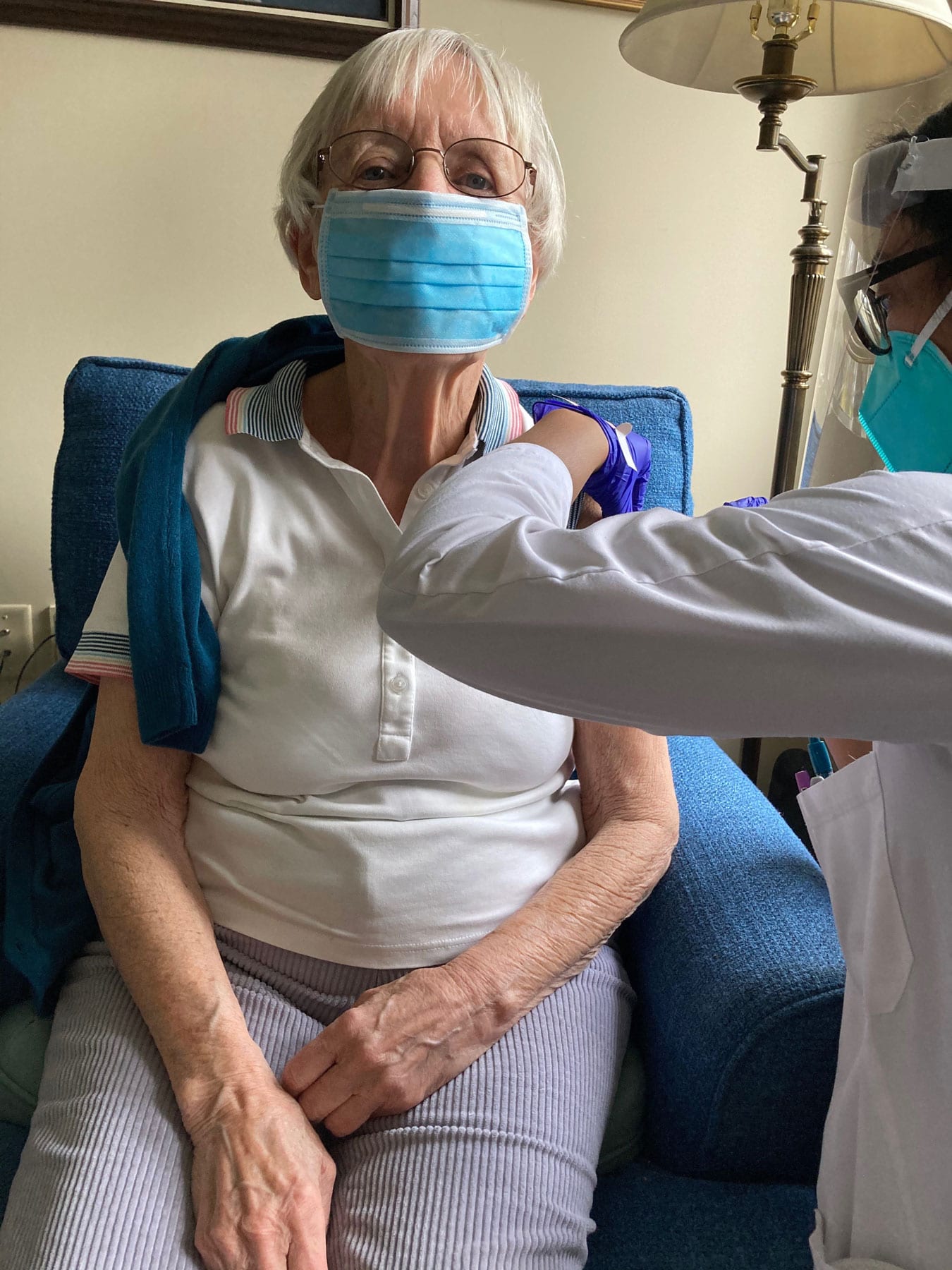What to know before, during and after your shot.
The past year has been an unprecedented one, and the world is celebrating the arrival of a COVID-19 vaccine. As we await our “turn” in the rollout, learn what to expect when you are vaccinated, and how you should continue to do your part to limit the spread of this virus.
Who should be vaccinated
The CDC is strongly encouraging all Americans to get vaccinated against COVID-19, when they meet the eligibility requirements of the rollout in their area. Pregnant woman and others who have medical concerns are advised to discuss with a trusted medical professional.
If you have already had the virus, there is still a chance of being re-infected. They are, however, cautioning patients who were given monoclonal antibodies or convalescent plasma while sick with COVID-19, to wait 90 days after treatment before getting the vaccine. It is always safest to check with your doctor before scheduling the shot. If you have recently been tested positive or have come into contact with someone who is sick, wait for the 14-day quarantine time to end before scheduling.
At this time, the two vaccines in circulation, the Pfizer-BioNTech and the Moderna, are approved for individuals over the age of 16, and both require two dosages for maximum protection. The Pfizer-BioNTech doses should be given 21 days apart, the CDC says, while the second dose of Moderna is administered 28 days after the first. Do not get your second dose early, but if you have trouble scheduling it, waiting a few days after the due date — and perhaps longer — should not be an issue for either vaccine.
Remember, it takes time for your body to build protection after any vaccination.
Before getting the shot(s)
- Avoid scheduling another vaccine, like the flu, tetanus, or shingles shot, within 14 days of being vaccinated against COVID-19. (Currently, the CDC does still advise patients to continue their COVID series on schedule if they inadvertently did get another type of vaccine during this time frame, but they may update this guidance.)
- It is rare, but a few people have had moderate-to-severe allergic reactions after being given the Moderna and Pfizer mRNA vaccines Be sure to tell the staff at the vaccine clinic about any allergies you have, including past allergic reactions. Ask ahead of time if the clinic has medicine available should you have an unexpected reaction.
After the shot(s)
- After the first dose, you will be given a card that details which vaccine you received, the date and location. Each authorized vaccine has a fact sheet with information that will help you to understand the benefits and possible risks associated.
- The CDC requires you to be monitored for a 15- to 30-minute time period before you can leave the vaccination site.
- Common side-effects to the shot may occur, which can include pain, tenderness or swelling on the arm you received the shot, fatigue, fever, chills and/or a headache. Many people experience no side-effects at all. Experts at the University of Chicago Medicine say it’s important to know that risks reported in connection with the COVID-19 vaccine are significantly lower — and less severe — than the risks associated with contracting COVID-19 itself.
Speak to your doctor about strategies to counter any side effects of the vaccine, which could include over the counter medications, cool compresses, gentle exercises and keeping yourself hydrated.
Call your doctor if you are concerned about your reaction and if it persists longer than several days. If an allergic reaction occurs, all 911 immediately.
Life After the Vaccine – and Questions You May Be Asking
Do I need the second dose to be immunized?
Make sure to schedule and follow through with your second vaccine dose for 95% protection against the virus. As with any vaccine, there is a time period for this to take affect; you are not immediately protected upon vaccination.
Do I still need to wear PPE?
Yes! At this time, it is unclear if you are still able to unknowingly transmit the virus to those around you, even after you have been fully vaccinated. Therefore, it is imperative that you follow all of the safety protocols to avoid getting others sick.
- Continue to wear a face mask covering your nose and mouth.
- Continue to social distance; leave a minimum of 6 feet between you and others, avoid crowds and poorly ventilated spaces.
- Continue to wash your hands often.
These precautions, as well as others, will need to continue for the foreseeable future, until we’ve reached herd immunity. Herd immunity occurs when a large portion of the population is vaccinated, making it difficult for infectious diseases to spread, because there are not many people who can be infected. Herd immunity works only if most people are vaccinated and experts still do not know the percentage of people who need to get vaccinated to achieve this.
Once I am vaccinated, can I still get COVID-19?
Yes, even after you are fully vaccinated, it is still possible for you to contract COVID-19. No vaccine is 100% effective, but it will significantly lower your chances, and researchers believe you may be less likely to get as sick as you would if you were unvaccinated.
Will I be required to take a COVID-19 test prior to surgery?
Yes, anyone who has been vaccinated is still required to go for testing as directed by your physician prior to a medical procedure.
Am I exempt from the State of CT quarantine requirements as they relate to travel?
At this time, any affected traveler who has been vaccinated is still required to self-quarantine upon arrival and to submit a travel health form, unless otherwise exempt.
Sources: CDC.gov; https://portal.ct.gov/coronavirus; https://www.uchicagomedicine.org/


